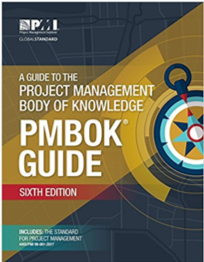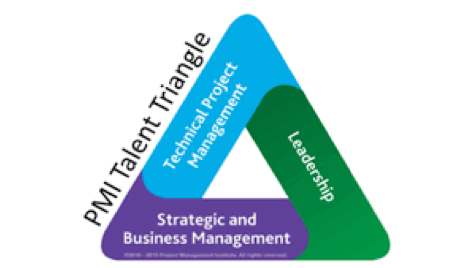In September of 2017, the Project Management Institute (PMI) updated to the PMBOK® Guide 6th Edition (I’ll just call it the PMBOK here for brevity’s sake, though it stands for the Project Management Body of Knowledge). Since the update was announced we’ve received a lot of excellent questions from PMP® candidates wondering how the changes will impact the 2018 PMP Exam. It’s worth nothing that PMI suggests the PMP exam is not a test of the PMBOK Guide; rather a test of practical project management experience. Although this is theoretically accurate, in practice, candidates know that changes to the PMBOK result in changes to exam questions.
With that in mind, I’ve put together a summary of the coming changes to the PMP Exam itself, and an overview of what’s new in the PMBOK 6th Edition. After that, I’ll give a quick review of PMP requirements and exam format, and link to additional resources. Okay, let’s get to it.
Why is the PMP Exam Changing?
PMI updated the PMBOK to its 6th edition late last year, and changes on the PMP 2018 exam are intended to harmonize exam questions with project management content in the latest edition. The first edition of the PMBOK was released in 1996, and PMI updates the text on average every four to five years.
When Does the PMP Exam Change?
The PMP exam will change on March 26, 2018; candidates who take the PMP exam before this date will have an exam based on the PMBOK 5th edition.
Is There a Grace Period with PMP 2018 Exam Changes?
There is no grace period for the PMP 2018 exam. PMI released the PMBOK 6th edition in September 2017 and at that time announced that exams after March 26, 2018 would be based on the new PMBOK.
Will PMP Requirements or Prerequisites Change?
The experiential and educational requirements to become a PMP have not changed with the 2018 exam. Here’s a summary from PMI’s website:
- Secondary degree (high school diploma, Associate’s degree or the global equivalent)
- 7,500 hours leading and directing projects
- 35 hours of project management education
OR
- Four-year degree
- 4,500 hours leading and directing projects
- 35 hours of project management education
Will the PMP Exam Fee Change?
The PMP exam fee will not change. The fee is $405 for PMI members and $555 for non-members.
Will the Format of the PMP 2018 Exam Change?
The number of questions on the PMP 2018 exam will remain the same, at 200 multiple choice questions. Only 175 questions count towards the score; 25 questions are considered “pre-test” questions, which basically means PMI may include them as “real” graded questions on future exams, but they don’t count towards the score on your exam. The problem – there is no way to tell which questions are legitimate and which are “pre-test”; so it is best to consider all questions as graded questions.
How Long do you Have to Take the PMP Exam?
You will still get four hours to answers questions on the PMP 2018 exam.
What’s New with the PMBOK 6th Edition?
The PMBOK 6th Edition includes changes to structure (a new chapter was added on The Role of the Project Manager), content (there is more material on adopting agile project management), PM knowledge areas (some names were changed), and PM processes (three new processes were added and one was removed). Additional details on that below.
What is the Role of the Project Manager in the PMBOK 6th Edition?
 There is a new chapter on The Role of the Project Manager in PMBOK 6th Edition which also discusses the PMI Talent Triangle. Although previous editions of the PMBOK discussed the role of the project manager, special focus is placed on essential project management skills.
There is a new chapter on The Role of the Project Manager in PMBOK 6th Edition which also discusses the PMI Talent Triangle. Although previous editions of the PMBOK discussed the role of the project manager, special focus is placed on essential project management skills.
The PMI Talent Triangle describes the essential skills that every project manager should possess: Strategic and Business Management, Technical Project Management, and Leadership. Those of you who report PDUs may already be familiar with this triangle. The PMBOK 6th edition adds clarity to each of these skills.
What are the New PMBOK Knowledge Areas?
There are no new project management knowledge areas in the PMBOK 6th Edition, but Project Time Management and Project Human Resource Management have new names. Here are the changes:
- Project Time Management is now known as Project Schedule Management
- Project Human Resources Management is now broadened to include non-personnel resources and is now known as Project Resource Management
How Many Processes are in the PMBOK 6th Edition?
There are 49 project management processes in the PMBOK 6th Edition (up from 47 in the fifth). Three processes were added (Manage Project Knowledge, Implement Risk Response, and Control Resources) and one was removed (Close Procurements). Here is additional detail on these processes:
- (New) Manage Project Knowledge – In PMBOK 5th Edition and previous versions, it is considered a professional responsibility of the project manager to gather lessons learned at the conclusion of the project. The PMBOK 6th edition goes further by calling out the need to manage knowledge throughout the project and to learn as you go. The words “continuous improvement” come to mind. The PMBOK 6th edition also discusses the need to transform raw data (an output from executing work on the project) into contextualized information and ultimately, by asking the right questions, into actionable knowledge. Those familiar with ITIL will recall the Data-Information-Knowledge-Wisdom (DIKW) model.
- (New) Implement Risk Response – In previous versions of PMBOK, emphasis is placed on the need to identify, plan, and manage risks throughout the course of the project. Essentially, risk management is never really done. However, there was no specific mention of implementing the planned risk responses. PMBOK 6th edition corrects this oversight by specific calling-out a process associated with implementing risk responses.
- (New) Control Resources – In previous editions of PMBOK, the only resources mentioned were human resources. The PMBOK 6th edition still recognizes that the project manager needs to manage people. However, the definition of resources is broadened to include equipment. This is more of a recognition than a revelation; a refinement and not a revolution.
- (Removed) Close Procurements – This process was removed to reflect the reality that not all project managers have the authority to close contracts.
Have any of the Project Management Processes Been Renamed in the PMBOK 6th Edition?
Yep. Three project management processes have been renamed – Plan Stakeholder Management, Plan Human Resources Management, and Control Communications.
- Plan Stakeholder Management is now called Plan Stakeholder Engagement
- Plan Human Resources Management is now called Plan Resource Management
- Control Communications is now called Monitor Communications
Plan Stakeholder Management and Control Communications are largely semantic changes. The former reflects the reality that, in fact, project managers are not really trying to manage stakeholders; instead they are trying to get them to care about the project, encourage them to support it, and continually manage stakeholder expectations.
Are Agile Concepts Part of the PMP 2018 Exam?
The PMBOK 6th Edition goes agile and includes a chapter on “Approaches for Agile, Iterative and Adaptive Environments”; some questions on the PMP 2018 exam will reference agile. According to Simona Fallavollita, Product Manager at PMI and PMBOK 6th Edition contributor, there may be a handful of agile questions “here and there” on the PMP 2018 exam, but the exam is not full of agile project management questions.
How Big of a Change is PMP 2018 from the Last Version of the PMP Exam?
Simona Fallavollita of PMI characterizes the change in the PMP 2018 exam as “moderate.” Although few of the new concepts are earth-shattering, candidates who studied using the PMBOK 5th edition will need to become accustomed to a few new project management processes and terms.
What is the Benefit of Becoming a PMP?
Certified PMPs are some of the most valuable employees in their organizations, it is easier for them to find jobs, and they make 20% higher salaries (on average) than non-PMP holders.
What’s our Approach to Preparing Students for the PMP Exam?
We offer PMP bootcamps in a public format and onsite at your location. The PMP bootcamp is geared to serious candidates who plan to take the PMP exam within 2-4 weeks after completing the class. The PMP exam is heavy on terminology and memorization, no doubt. But Beyond20’s approach goes beyond memorization. We use presentation, lecture, in-class exercises, and lots to practice questions to help you understand how project management processes work together, which makes acing the exam much easier.



